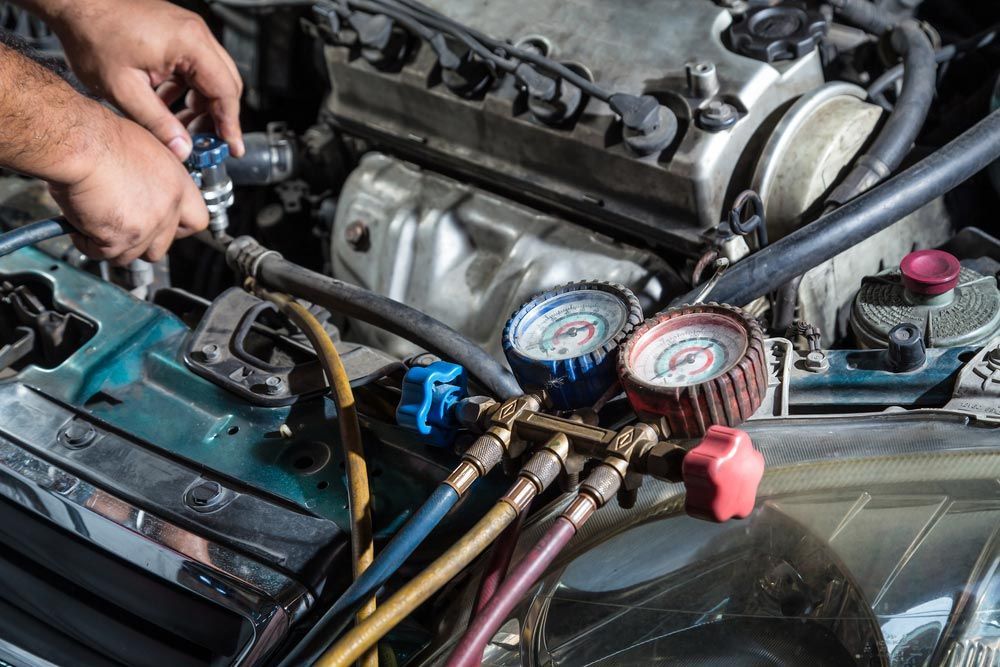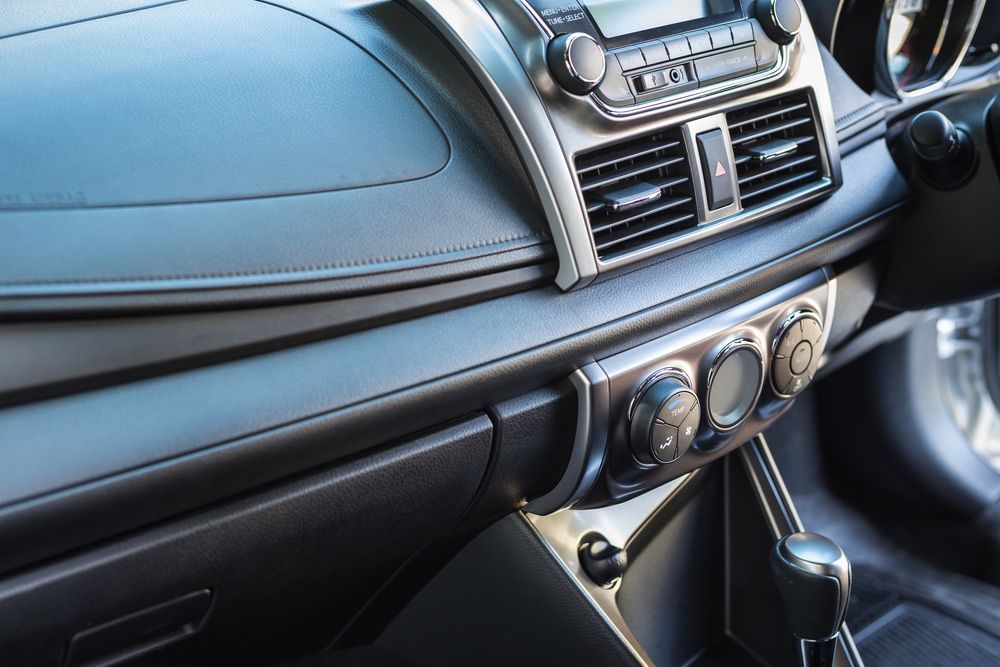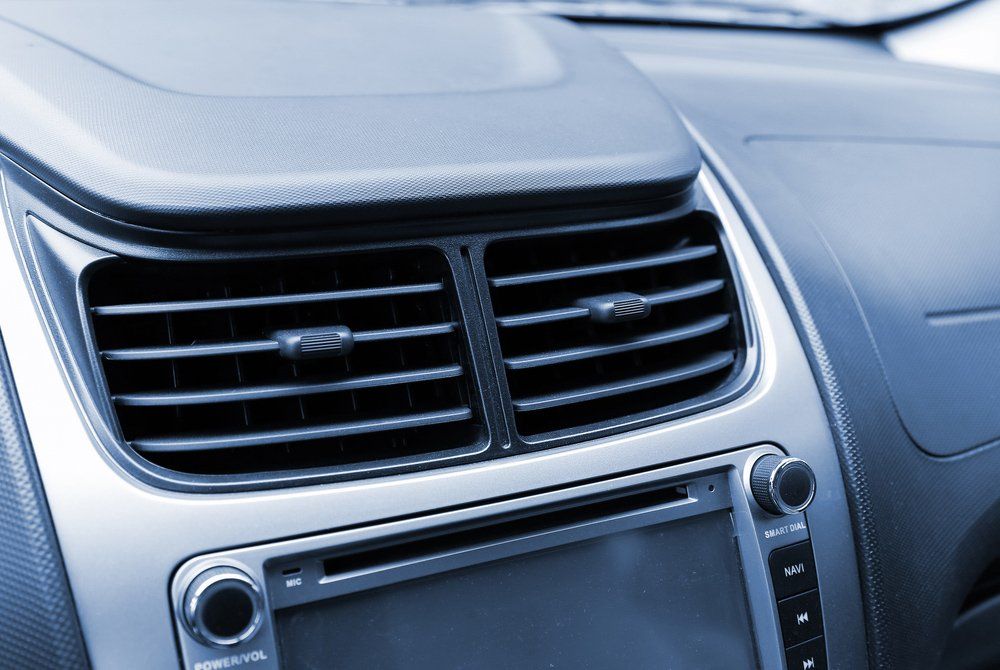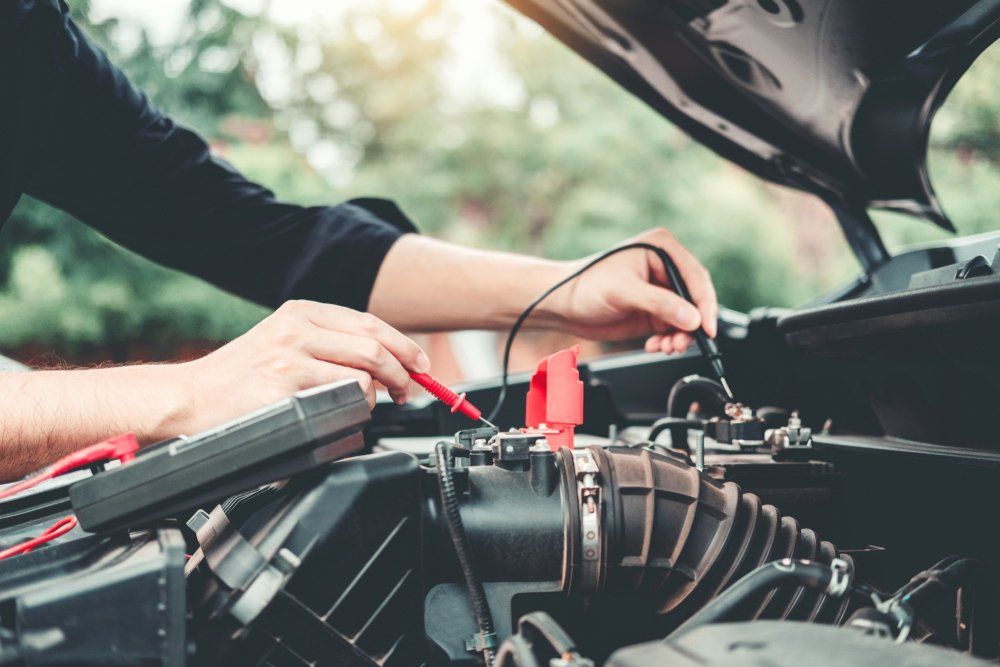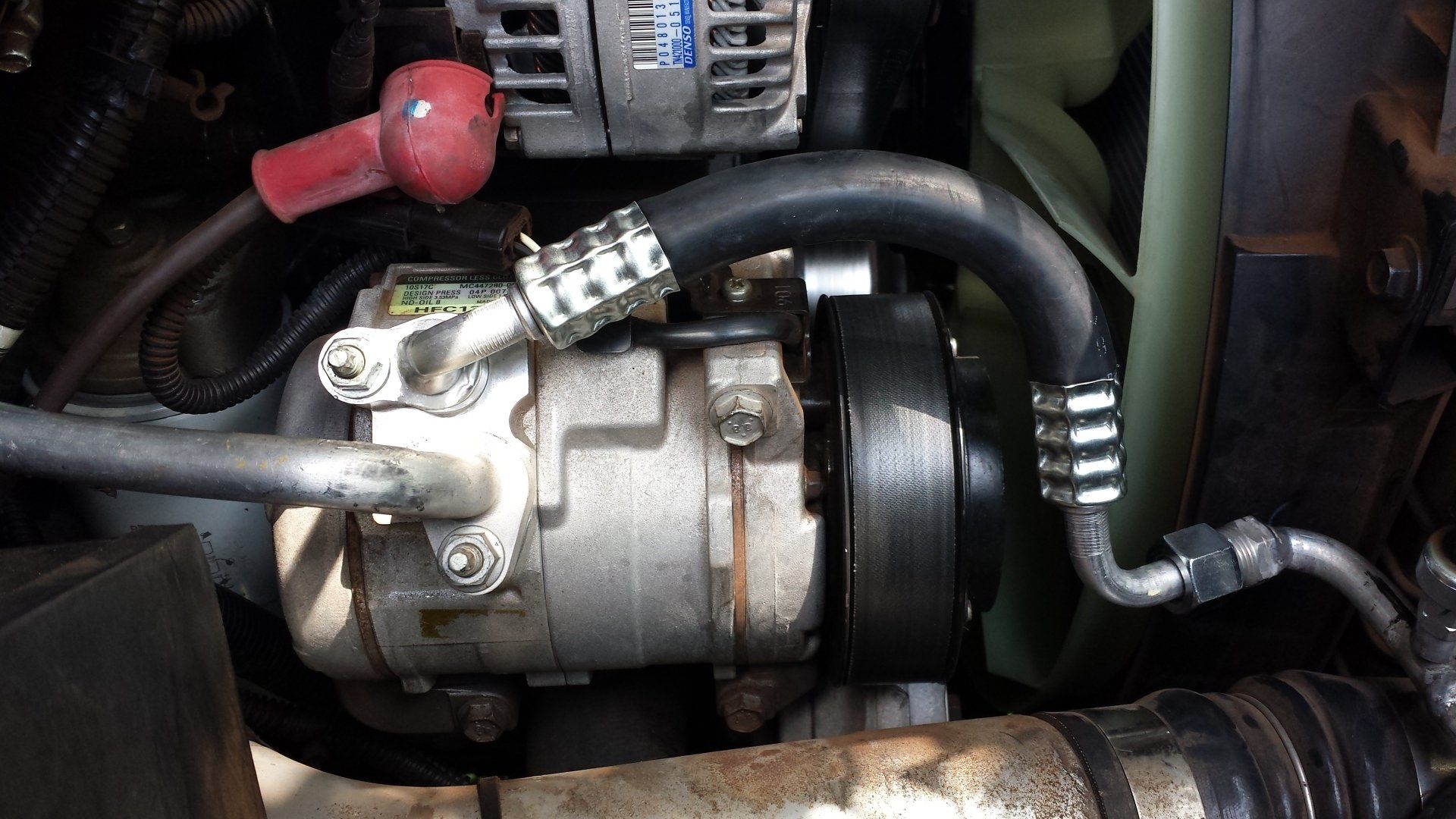How To Tell If Your Car A/C Needs A Regas Or Full Repair
In Darwin’s heat and humidity, a working car air-conditioner isn’t just a nice-to-have—it’s essential. When your A/C stops cooling properly, the big question is whether it just needs a regas or if something more serious is going on.
Ignoring the signs can lead to bigger problems and more expensive repairs. In this blog, we’ll break down the signs of low refrigerant versus a full A/C fault, show you what to check yourself, and explain why early servicing is especially important in Darwin’s climate.
Recognising the “just needs a regas” scenario
When your car’s air-conditioning stops being as cool as it once was, it might not mean a major fault—sometimes it simply needs a regas. This involves replacing the refrigerant gas in the system, which can gradually diminish over time. While refrigerant doesn’t get ‘used up’ like fuel, minor leaks, seal wear, or even just long-term operation can reduce levels.
If caught early, a regas is quick, cost-effective and restores cooling performance instantly. Keep an eye out for these signs that your system may just be low on refrigerant:
- Air from the vents is cool but not cold
- Cooling takes longer than usual when the system starts
- Cold air fades during longer drives, especially in stop-start traffic.
- There are no loud noises, unusual smells or visible signs of damage.
Signs you might need a full A/C repair rather than just a top-up
Not every air-conditioning issue can be fixed with a simple regas. If your system has deeper mechanical faults or serious leaks, a full repair will be required. This may involve replacing hoses, compressors, or electrical components to restore full functionality.
Symptoms that indicate the need for a more comprehensive repair include:
- Air remains warm or inconsistent despite the system being on for several minutes
- You notice odd smells—musty, mouldy or chemical-like—from the vents.
- Hissing, rattling, or clicking noises when the air-conditioning is running
- There’s visible oil or residue near the A/C components or under the car.
- The compressor clutch doesn’t engage when the system is turned on.
- Cooling cuts out completely during hotter parts of the day
Why Darwin’s climate makes A/C problems more urgent
Darwin’s tropical climate puts a heavy workload on car air-conditioning systems year-round. The combination of high heat and humidity means even slight drops in performance are immediately noticeable and often uncomfortable.
In this environment, A/C components are exposed to harsher conditions:
- Condensers and compressors run hotter and more frequently
- Rubber seals and hoses degrade faster under constant heat.
- Humid conditions increase the risk of mould growth inside vents.
The simple checks you can do before booking in
Before booking in for service or repair, there are a few easy checks you can do to assess your air-conditioning system’s condition. These checks won’t fix the problem, but they can help you better describe the issue to your technician or decide whether to seek immediate help.
Here’s what you can do:
- Turn on the A/C with the engine running and feel the vent air within the first 2–3 minutes.
- Listen for strange noises such as clicks or squeals when the system is activated.
- Smell the air coming from the vents for mould or chemical odours.
- Check airflow strength—is it weak or struggling to push air through?
- Look under the bonnet or the car for signs of oil stains or pooled fluid around the A/C system.
How professionals decide between a regas and a repair
When you bring your vehicle in for inspection, an experienced technician will run a full system diagnostic. This involves checking refrigerant pressure, inspecting seals and hoses, testing compressor function, and scanning for electrical faults.
Based on their assessment, they will recommend either a simple regas or a full repair.
Here’s what each process usually involves:
- Regas:
- Evacuating the remaining refrigerant
- Testing for leaks with pressure gauges or dye
- Refilling with the correct refrigerant type and quantity
- Basic performance testing
- Full repair:
- Replacing damaged components (e.g., compressor, seals, hoses)
- Advanced leak detection (UV dye, nitrogen testing)
- Electrical system testing and part replacement if required
- System flushing and recharge after repairs
Why you should act early when you notice symptoms
Waiting too long to address a failing air-conditioning system often leads to more expensive repairs. A slow refrigerant leak today can become a seized compressor next month. Moisture entering the system through faulty seals can lead to internal corrosion and failure of key components.
In the Darwin heat, even a few days without working A/C can make commuting or long drives uncomfortable and unsafe. Acting early helps you:
- Avoid larger, costlier mechanical failures
- Keep fuel efficiency in check—faulty systems often increase engine load.
- Maintain passenger safety through reliable cabin temperature control and windscreen demisting
- Ensure continued performance during peak heat and humidity
What to expect when you book with a mobile specialist service
In regions like Darwin, where time and climate are important factors, mobile air-conditioning specialists are a practical solution. A qualified technician can come to your home, workplace, or other location and diagnose the issue on the spot.
Here’s what a typical mobile service may include:
- On-site refrigerant pressure testing and system inspection
- Leak detection using UV dye or pressure monitoring
- Compressor clutch and electrical component testing
- On-the-spot regas or recommendations for repair
- Transparent explanation of the issue and best next steps
Simple maintenance tips to keep your car A/C in better shape year-round
With a bit of ongoing care, you can extend the life of your car’s air-conditioning system and avoid unnecessary repairs. Here are some practical maintenance tips:
- Run the A/C for a few minutes each week—even in cooler weather—to keep seals lubricated
- Replace cabin air filters as recommended to ensure optimal airflow and reduce odours.
- Keep leaves and debris away from the air intake area near the windscreen.
- Use the ‘recirculate’ function in heavy traffic to ease system load.
- Have your system checked annually before the wet season to identify early faults.
Stay Comfortable with Expert Car Air Conditioning in Darwin
At Cool Cars NT, we provide mobile car air-conditioning services in Darwin. Whether your system needs a simple regas or a full repair, we offer fast, local support tailored to the unique conditions of the Top End. Our technicians are fully equipped to diagnose and service all major vehicle A/C systems—right where you are.
Don’t sweat through another drive—let us help keep you cool.
Contact us.

